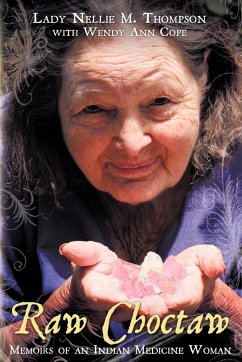Imagine never learning how to read or write, let alone receiving any formal educational training. One would find it difficult to survive in today's society, yet Nellie M. Thompson has thrived even before she learned to read at the age of 88. This inspiring account of a Choctaw Indian woman, whose courage and faith in God move her through many difficult trials, weaves memorable anecdotes into a fresh, first-hand perspective of her history and culture. Significant to readers for what is revealed about Native American experiences in today's society, Thompson offers vivid recollections of hardship, sacrifice, and camaraderie of a forgotten people. A descendant of Chief Pushmataha (who the Civil War general Thomas J. "Stonewall" Jackson called the "greatest Indian" he had ever known), Thompson was born a princess by the signs of the moon. Her powerful memoir tells of growing up as a Choctaw Indian in the small-town Midwest of Oklahoma, Arkansas, Texas and eventually California in the late 1940s. Her faith in God was shaped after she was healed from Polio by an Indian medicine man at the age of eight --this experience dictated her personal commitment to a lifetime of service. She herself became an Indian Medicine woman treating human ailment with herbs and Indian techniques. Now a 2nd grade reader, Thompson poignantly relates the humble details of her youth and early adulthood, adroitly interspersing these often-sordid memories with detailed accounts of child-rearing, reservation living, food preparation, and much more of interest to ethnologists and students of Native American history. Universal appeal is offered through Thompson's outlook of humor and wisdom that applies to all ages and cultures. Living alternately with her father and foster home after enduring her mother's untimely death, Thompson learned to fend for herself by cleaning homes, skinning rabbits, and nursing pigs. Her proudest accomplishment is that all of her children graduated from high school.








